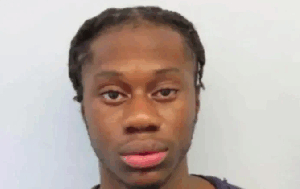"Medico or suicide!"
That used to be a mocking refrain of sorts on the University of Ghana (UG) campus some not-so-distant years ago. "Medico" was the ultimate. As for "archeo" and "oceano", they were amusingly contemptible. I hardly hear it and the humour it inspires these days. Certainly, the introduction of a direct entry medical science programme has kicked it out of the common lingo of students. I remember the days when all UG aspiring doctors were required to justify their medical school inclusion on biological science terrain. Those were the times when the rate of lucubration was dangerously at an all-time high. Students travailed in studies and studiously stuck to their books to the point of nerdish keenness, exhaustion and sometimes piteous anxiety. The business of gaining admission into the medical school was no child's play. The stakes were just too high; the physical and mental toll on some of these ambitious science students was obvious, especially to their inner-circle colleagues. In most instances, they sympathized greatly with them and the more caring ones were ever mindful to continually seek an otherworldly assistance on their behalf. I personally witnessed the case of a promising young man who was emotionally shattered by his inability to join a particular year's future batch of Ghana's disease-diagnosing professionals. It was a narrow miss, and this made it piercingly painful. I understand he subsequently forged an interest in biochemistry and is at the moment contributing his quota to national development as a fulfilled biochemist.
I hope there is no misunderstanding here. All what I want to say is that the prestige associated with medical science is not a Ghanaian phenomenon. It is the same everywhere you go. Cubans hold in high esteem the medical doctor and remains beholden to him as far as the overwhelming goodwill of African governments are concerned. Canadian immigration authorities would fain grant immigration status to a physician than to a buy-and-sell businessman. And in seeking to entice Ghana's foremost cardiothoracic surgeon with 'luscious' citizenship, Germany demonstrated that a country with ingenious medical minds is indeed wealthy. This field of science and practice called medical science is indeed competitive and at the same time prestigious. However, we commit a serious error when we associate it with big-time dough like the kind being made in finance and industry.
Anyone who has ever been involved in the education of young folks knows very well that law parallels medical science in terms of desirability. In other words, law and medical science are traditional competitors. Law, like medical science, is supposedly prestigious and perceived as a domain exclusively catering to the survival of those connected to the powers that be. Perhaps, that explains why the administration of Bachelor of Laws (LLB) entry programmes at KNUST and the University of Ghana has had its share of conspiracy theories. Some insist that the process of writing examinations and attending selection interviews is fraught with underhand dealings. Such wild and accusatory theories leave no room for the credibility of postgraduate LLB selection processes at these two prominent Ghanaian universities. Different versions of these theories exist, but I have not had any reason to believe any of them. This has been my position despite the following anecdote.
A Special Day
Some days are more special than birthdays and the 24th of June, 2011, was particularly so for me. This day was long expected. On this day, I received a text message from KNUST's Law Faculty inviting me for a selection interview after passing an entrance exam.
"The KNUST Faculty of Law invites you to a selection interview at the Law School on Wednesday, June 29, 2011, at 9am. Please bring along originals and photocopies... "
I happened to be in the category of candidates who applied for the law programme with qualifications other than first degrees. As a matter of fact, only twenty-five of such candidates were privileged to be called for the entrance examination. Preparations were immediately made and the 29th of June saw an intending law student at the Law School ready for an interview of a lifetime. I checked the notice board only to realize that only two people out of the twenty-five in my category of applicants had been called for the selection interview. Yes, just two of us: the other twenty-three candidates had been unsuccessful. About sixty candidates in the other category were called for the interview. So out of over four hundred expectant candidates who had initially sat for the entrance examination, the candidates who passed the seemingly competitive exams were less than sixty-five.
The Dean of the Faculty of Law and his team of distinguished lawyers were occupied with the task of subjecting potential law students to various questionings on that day. After being ushered into the interview room, the earliest thought on my mind was that elementary principle adhered to by every interviewee: Do not to sit down until you have been asked to. My expectation was that a typical law interview would have revolved around legal technicalities and topical issues relating to governance. I was rather confronted with an entirely different set of questions. It seemed the interviewers were not interested in knowing my opinion about current national issues. Neither were they interested in testing my lore in any area of law. They only wanted to ascertain whether I knew the names of the Chairman of the university council, the Chancellor and Vice-chancellor of KNUST. Fortunately, I knew all about the likable P.V Obeng of blessed memory, the Asantehene Otumfuo Osei Tutu II and that young unassuming scholar called Professor William Otoo Ellis. Methinks I had a field day, as I correctly and effortlessly answered these simple questions from the lecturers. Other questions with regards to the nature of my qualification came from the dignified Dean and in no time, the interview was over and I was free to leave the room. Actually, the approach was not new to me even as it was somehow reminiscent in essence to Dr. Benjamin Carson's medical school interview as narrated in "Gifted Hands". But whilst his knowledge of classical music secured a slot for him in medical school, I was yet to know whether my knowledge of officialdom could grant me ingress into Law School.
"You will hear from us".
That was the last statement from the 2011 KNUST law interview panel. And Guess what? It inspired expectation. Well...ahem...I am yet to receive my admission letter from KNUST's Faculty of Law. Whilst waiting, I have purposed not to be immobilized by the "medico or suicide" kind of agonizing disappointment. Though extremely piercing, the pain of narrowly missing a unique opportunity to don black robes and regular suits someday has been kept in check by a resilient moxie. That is why the disciplined commitment to voracious reading has not been discontinued. It is continuing. And it is still effective, peculiarly effective, at shaping individuals into learned colleagues with polymathic mastery of issues in any "I put it to you" tussle.
Gideon Amoako Sarpong College of Education University of Ghana aca_education@yahoo.com
Opinions of Friday, 14 November 2014
Columnist: Sarpong, Gideon Amoako















